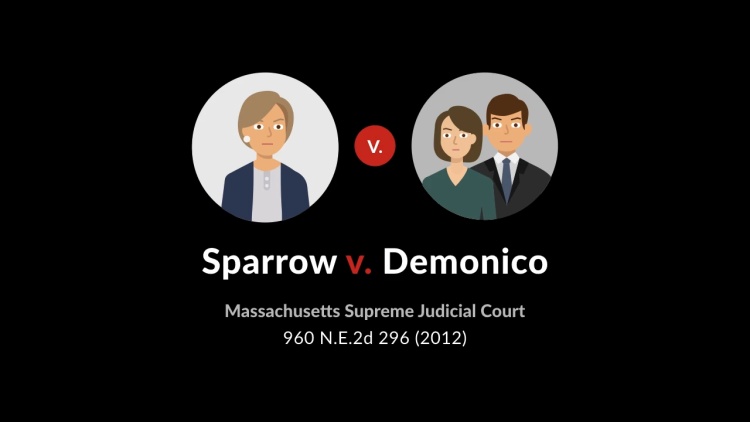Sparrow v. Demonico
Supreme Judicial Court of Massachusetts
960 N.E.2d 296 (2011)
- Written by Craig Conway, LLM
Facts
Frances Sparrow (plaintiff) filed suit against her sister and her sister’s estranged husband, Susan and David Demonico (defendants), seeking an order declaring Sparrow to have a one-half interest in a home and real property owned by the sisters’ deceased mother. Susan claimed that she and David were the sole owners of the family home after having lived in the house for several years and as reflected in a recorded deed. Prior to trial, Sparrow and the Demonicos engaged in voluntary mediation, which resulted in an agreement providing that the Demonicos would sell the family property and pay Sparrow $100,000 from the proceeds. Subsequently, Sparrow filed a motion to enforce the executed settlement agreement. At an evidentiary hearing on the motion, David testified that on the morning of the mediation, Susan had a mental breakdown and was slurring her words, became less coherent, and cried uncontrollably. David and Susan left mediation early as a result, but permitted their counsel to execute a settlement agreement on their behalf. Susan provided similar testimony and added that she had recently stopped taking her prescribed antidepressant medication. There were no other witnesses at the hearing, and no exhibits were admitted into evidence. The trial court denied Sparrow’s motion, concluding that Susan’s mental impairment prevented her from having the capacity to contract at the time the settlement agreement was executed. The trial court then granted the Demonicos’ motion for a directed verdict. Sparrow appealed.
Rule of Law
Issue
Holding and Reasoning (Duffly, J.)
What to do next…
Here's why 911,000 law students have relied on our case briefs:
- Written by law professors and practitioners, not other law students. 47,100 briefs, keyed to 997 casebooks. Top-notch customer support.
- The right amount of information, includes the facts, issues, rule of law, holding and reasoning, and any concurrences and dissents.
- Access in your classes, works on your mobile and tablet. Massive library of related video lessons and high quality multiple-choice questions.
- Easy to use, uniform format for every case brief. Written in plain English, not in legalese. Our briefs summarize and simplify; they don’t just repeat the court’s language.





